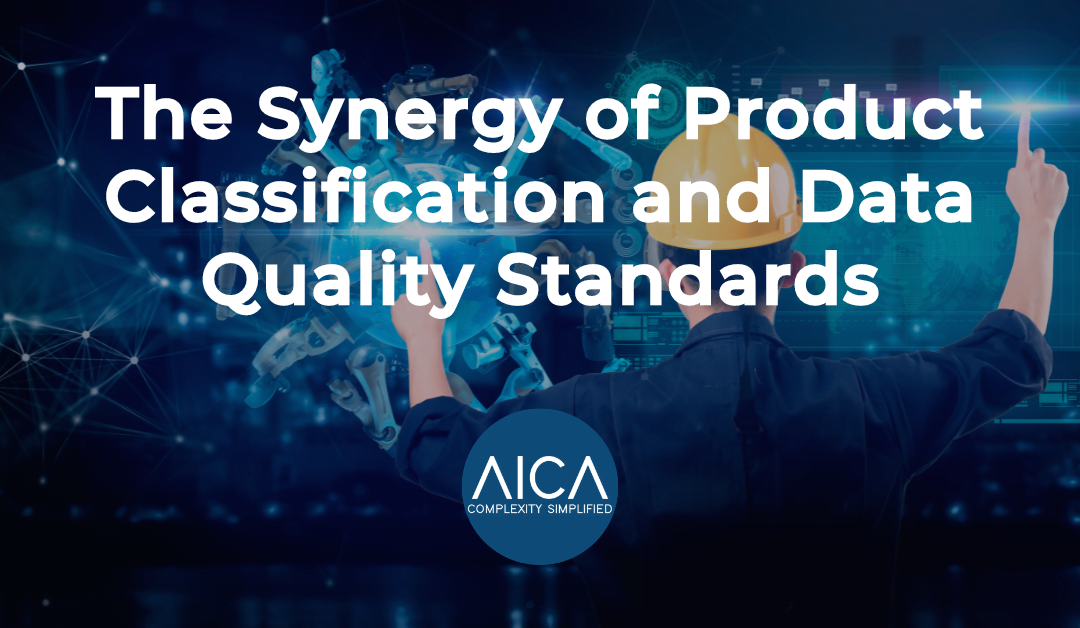The standardisation of product classification and the meticulous management of product data quality have emerged as foundational pillars for the optimisation of procurement and supply chain operations.
The integration of these standards ensures that organisations can efficiently categorise their offerings and maintain the integrity of product information, thus facilitating seamless transactions and strategic decision-making.
Understanding UNSPSC and Its Role in Product Categorisation
The United Nations Standard Products and Services Code stands as a hierarchical framework devised to categorise products and services. Its primary aim is to simplify procurement and supply chain management by offering a uniform method to classify products and services.
While UNSPSC effectively groups products into various commodity classes, it does not extend to the standardisation of product attributes, focusing instead on the products and services at a more general level.
Bridging the Gap: Standards for Classifying Product Attributes
Although UNSPSC provides a robust structure for product classification, the detailed classification of product attributes requires additional standards and frameworks:
GS1 Global Product Classification (GPC)
Managed by the international organisation GS1, this standard offers a comprehensive set of attribute definitions for describing product characteristics uniformly.
This hierarchical system resembles UNSPSC but includes further classifications for product attributes, providing a standardised approach to describe product characteristics.
This suite of international standards focuses on data quality and the management of enterprise master data, offering guidelines for the creation and management of product attribute data.
Tailored to specific industry requirements, some organisations develop their unique taxonomies for product attributes, which can complement existing product classification standards like UNSPSC.
The choice of standards or the development of custom taxonomies should align with the specific needs and industry requirements of an organisation, potentially involving a mix of different standards to adequately classify product attributes.
The Role of ISO 8000 in Enhancing Data Quality
ISO 8000 stands out as a beacon for organisations aiming to ensure the accuracy, consistency, and utility of their data. It encompasses various aspects of data quality management, such as syntax and semantic encoding, provenance, accuracy, completeness, and a quality management framework.
Applying ISO 8000 standards to product data, such as that of a ball bearing, ensures that all relevant information is accurately and consistently represented, laying the groundwork for error reduction, improved decision-making, and enhanced business outcomes.
Synergy of UNSPSC and ISO 8000: A Holistic Approach to Product Data Management
While UNSPSC and ISO 8000 serve distinct purposes in product classification and data quality management, respectively, their combined application can significantly bolster the management and quality of product data within an organisation. By utilising UNSPSC for the classification of products and services and employing ISO 8000 standards for the management of associated data, organisations can achieve a comprehensive and reliable product data ecosystem.
AICA: Helping Automate Product Data Classification
AICA helps businesses automate the classification of product data to align with the standards outlined above, including UNSPSC, GPC, eClass, and ISO 8000.
Whether we consult for your business or have your team utilise our cutting-edge SaaS platform we ensure that products are not only categorised efficiently according to the relevant commodity classes but also that their attributes are meticulously classified and managed to uphold the highest standards of data quality. Through automation,
AICA empowers organisations to streamline their product data management processes, enabling enhanced decision-making, operational efficiency, and compliance with industry standards.
Conclusion
By embracing these standards, organisations can ensure the reliability and consistency of their product data, thereby facilitating improved supply chain management and procurement practices. AICA stands at the forefront of this endeavour with our automated solutions that encapsulate the essence of these standards to help businesses thrive in a competitive marketplace.
To find out more about our services or to book a demo today – visit our website here.
